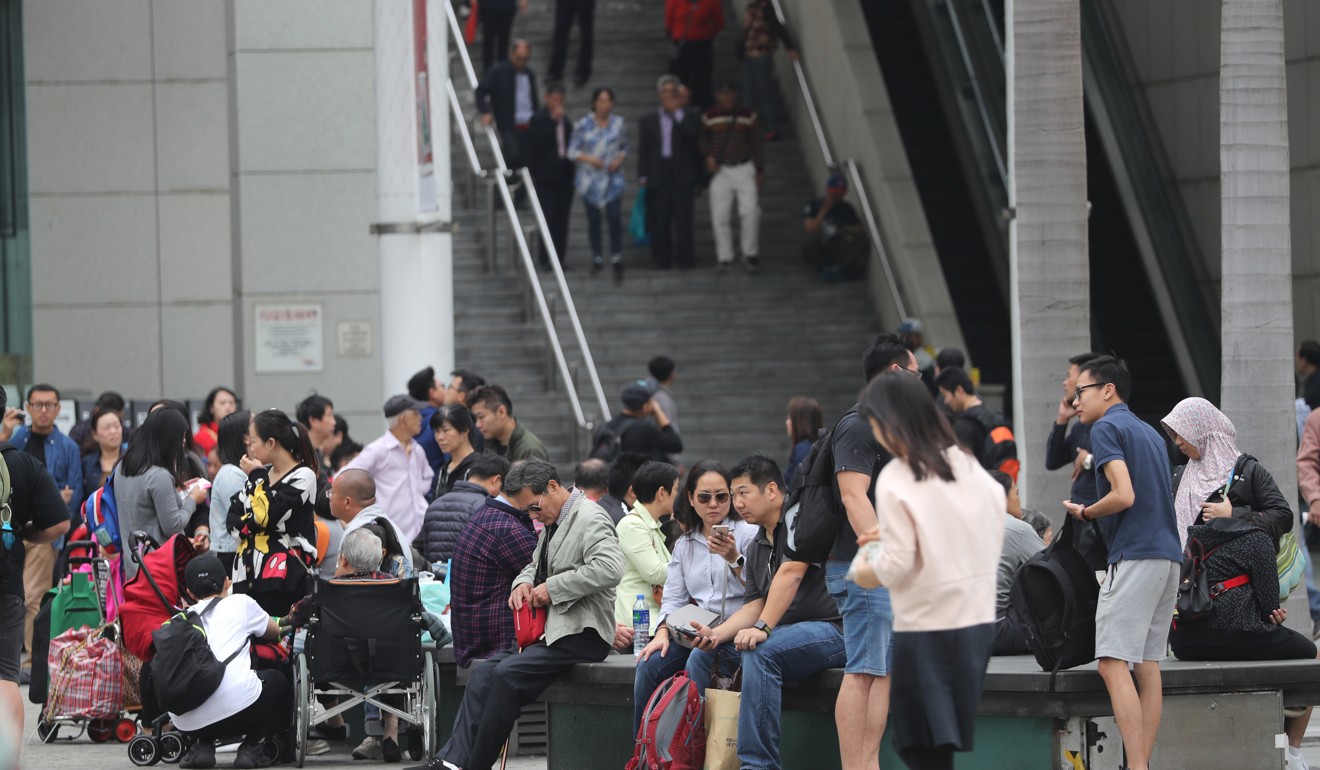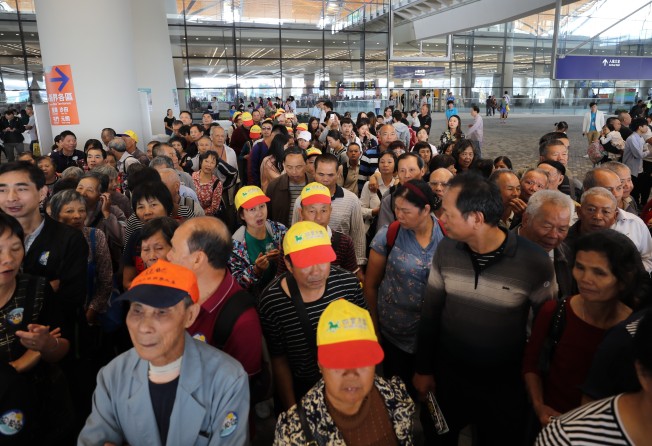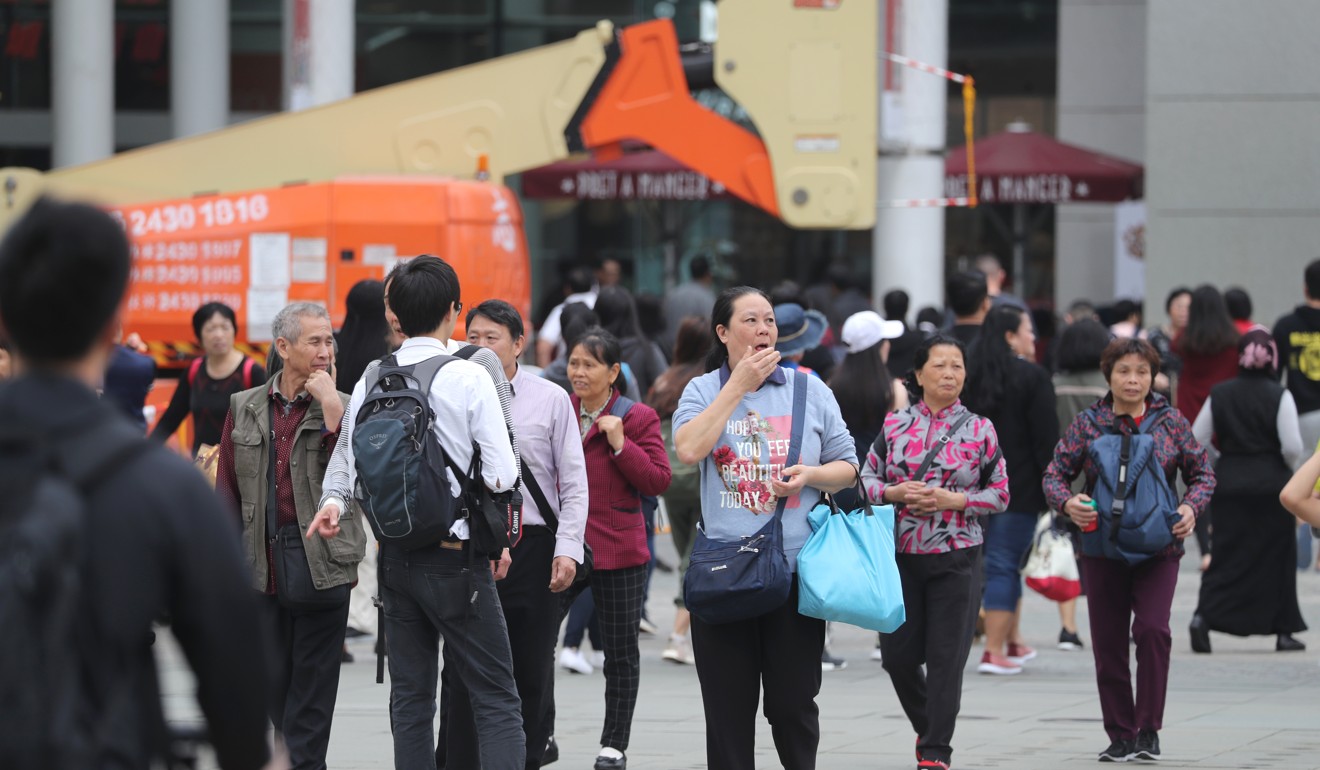
Visitors on Hong Kong-Zhuhai-Macau Bridge tail off after mainland Chinese tourism boards’ cooling measures – bringing relief to Tung Chung
- Some tourists were caught out by new measures, unaware they had to now pre-book tickets, and ended up paying more
- Executive director of Travel Industry Council, Alice Chan, hoped positive impact would last but did not want numbers to drop too much

The number of visitors to Hong Kong using the new cross-border mega bridge dropped on Saturday, after measures were put in place to address an influx of tourists to one part of the city.
By 8pm, 30,096 passengers had entered the city via the local port of the Hong Kong-Zhuhai-Macau Bridge, down from 45,034 – a 33 per cent drop – at the same time last week.
Earlier this week, Guangzhou’s tourism authority sent an “urgent notice” to mainland Chinese travel agencies to ask them to avoid sending tour groups to Hong Kong via the mega crossing on the weekends while Guangdong authorities also pledged to regulate the province’s travel sector.
The efforts came after residents of Tung Chung on Lantau Island complained of being inundated by mainland Chinese visitors following the opening of mega crossing last month, raising concerns the community would become another crowded cross-border town, such as Sheung Shui.

Wong Chun-yeung of local activist group Tung Chung Future, who staged a protest in the district to “reclaim” the zone from mainlanders, voiced his approval, saying the number of visitors had fallen further from last week, which had already seen some improvement.
Business for the first 10 months was so-so … of course we want it to boost
However some mainland Chinese visitors travelling from Zhuhai to Hong Kong were caught out by the new measures rolled out by the port-to-port shuttle bus services operator.
Some did not know they needed to pre-order tickets via WeChat and found tickets were sold out when they arrived at the mainland port. They ended up taking other cross-border buses, which charged them more.
A man surnamed Zeng, who lives in Dongguan city in Guangdong, came on a day tour.
He said their group of more than 40 visitors had arrived in the morning via the Shenzhen Bay port and planned to leave via the mega bridge.
“It’s popular for mainland tour groups to come to Hong Kong through one port and return via another,” he said. “It can divert the flow of visitors and prevent overcrowding at a particular port.”
According to the Travel Industry Council, the number of registered tour groups coming over the bridge fell to 340 this weekend, compared with 430 a week earlier.
Executive director Alice Chan Cheung Lok-yee said the figures indicated measures adopted by the Guangzhou’s tourism body had been effective.
Chan hoped the positive impact would last but did not want the numbers to drop too much.
“Business for the first 10 months was so-so,” she said. “Of course we want it to boost.”

She said the number of registered inbound mainland groups received in Hong Kong for the first 10 months this year was 10 per cent lower than the figure recorded during the same period last year, but from November 1 to November 20, the number jumped 15 per compared with the same period in 2017.
“The impact of the bridge was evident,” she said.
The 55km bridge – which is the world’s largest sea crossing – was opened by President Xi Jinping after two years’ of delays and budget overruns in the billions of dollars.
Critics have called it a white elephant, doubting whether it was worth the HK$120 billion (US$15.4 billion) Hong Kong invested in it.